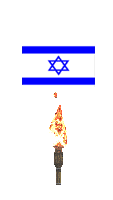RELATIVE CLAUSES
Relative pronouns connect a relative clause to a main clause. They are who, whom, which, that, whose, where, why, when and what.
Who/whom/that refer to people. Which/that refer to animals or things, although people who love animals often use who when speaking of them. Whom is very unusual, especially in informal English, and is generally omitted or replaced with who:
• We'll take Thameur to the specialist (who) we've heard so much about.
Whose is possessive, for people or things:
• She works for a company whose chief executive has been arrested for fraud.
Where is used after nouns referring to place, when after nouns referring to time, and why after the word reason. Where/when can often replace in/on/at which:
• I think that's the mosque where/in which my grandfather used to pray.
• It was a day when everything seemed to go wrong.
• Is there any reason whyhe can't come?
What means 'the thing that':
• l''ll explain what he said.
• What I like for breakfast is just a cup of coffee.
• She'll give you just what you want.
Defining relative clauses give us the necessary information to know which person or thing is referred to:
• I did the work (that/which) he asked me to do.
In this type of clause there is no comma. That or which can be used, or the pronoun can be omitted if it is the object.
Which and that are often interchangeable. In defining clauses, however, that is commonly used instead of which after superlatives, every(thing), all, only, some(thing), any(thing), no(thing), none, little, few and much:
• It was the strangest case that had ever come to Dr Ouali's notice. No disorder that he had read about had such bizarre symptoms.
Which is used
1. to refer to a whole previous sentence, and needs a comma before it:
• Nadir never offers to pay, which always annoys me. (NOT *what always annoys me) .
2. with a preposition/particle:
• This is the room in which Ali died. (formal).
• This is the room (which) Ali died in. (informal)
3. in non-defining clauses, "which" gives information that is not really necessary:
• I did the work, which was well paid.
A comma is used to separate the relative clause from the main clause. That cannot be used to introduce this type of clause.
If who, which or that is the object of the relative clause, not the subject, the pronoun can be, and often is, omitted:
• I received the order you dispatched last week, (which/that = object)
• l' ve received the goods, which are in my office now. (which = subject)
Notice that we do not use a possessive adjective in the following type of sentence:
• It's the bike Dad gave me . (NOT *It's my bike Dad gave me.)
In non-defining clauses, determiners like some, all, neither, none, (a) few, (a) little, both, most, much and several, superlatives and expressions of quantity can be used with of whom (for people) and of which (for things):
• They'll introduce you to a lot of people, most of whom you'll forget immediately.
• I was offered lamb or chicken, neither of which I like.

